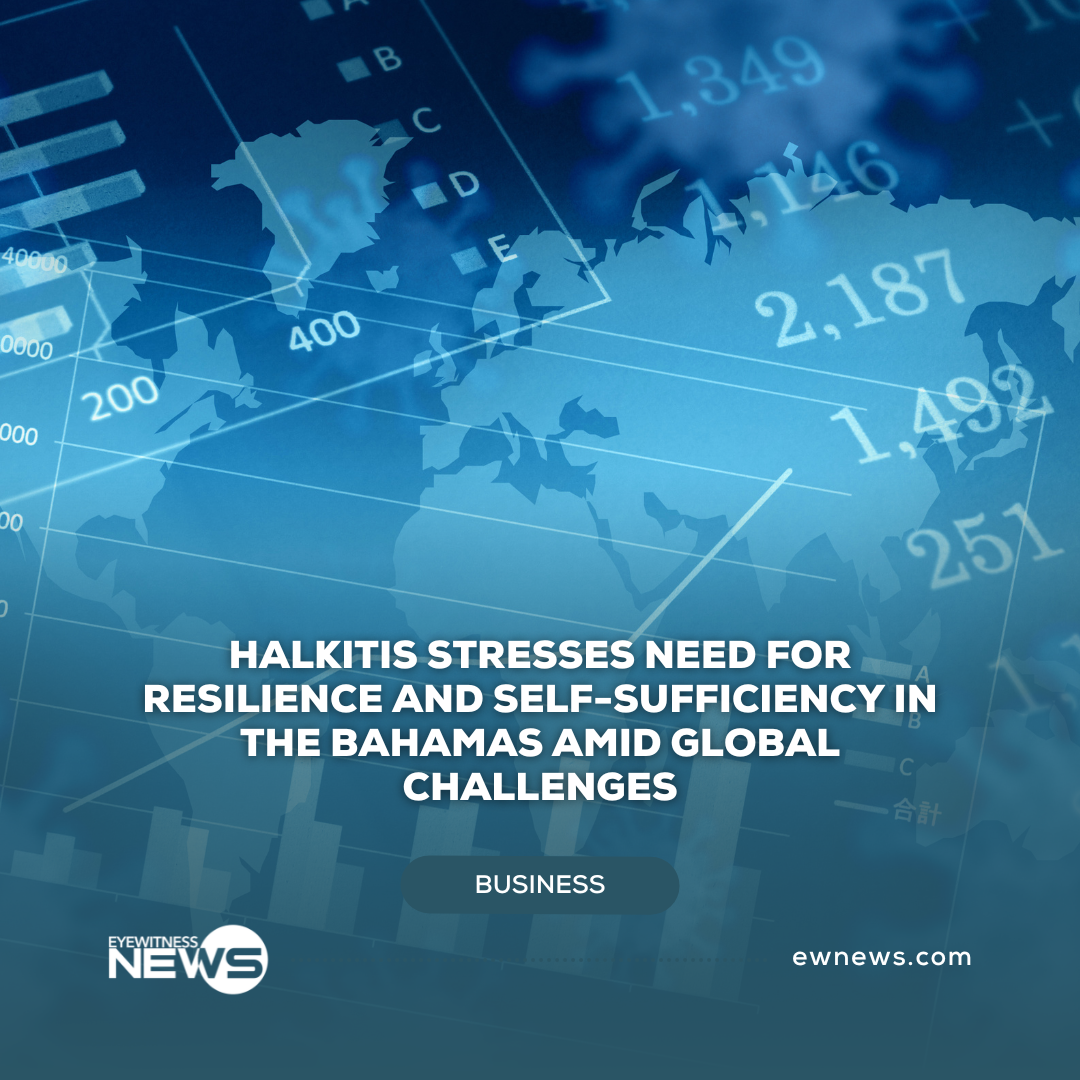NASSAU, BAHAMAS- Economic Affairs Minister Michael Halkitis said the Bahamas must take decisive action to become more resilient and self-sufficient, focusing on emerging industries amid global economic uncertainty, noting that despite challenges, the nation is “not in a bad place.”
Halkitis, while addressing the Central Banking Series Conference on Monday, noted that as a small island economy, The Bahamas must take the steps necessary to become more resilient, more sustainable, and more self-sufficient to thrive in these times of rapid change.
“We must encourage investment in emerging industries within the digital green and orange economies. We must develop the agriculture and fishery sectors to lower our trade deficit and make us less sensitive to external shocks, and we must allocate the resources necessary to adapt to the triple transition of climate change, digitalization, and social equality. These three forces will spur tremendous change in coming years and whether they hurt or help us, whether we remain competitive or fall behind, is up to us,” said Halkitis.
He added: “Fortunately, we have a strong foundation on which to build. Last year we brought in a record 11.2 million visitors which broke the previous record of 9.6 million the year before. We lowered the unemployment rate to 8.7 percent, the lowest rate since 2008, and we expect to see that number decrease even further. We have over $10 billion dollars in investments in the pipeline including unprecedented investments in Grand Bahama and our family islands and we were removed from the EU’s blacklist securing the future of our financial services industry. The economic growth we have enjoyed over successive years has not been fully enjoyed by all of our people, however, due in large part to global inflation. Fortunately, the global inflation rate is finally leveling off. This is a trend that we hope will continue amid the potential changes in tariffs that may affect many of our largest trading partners.”
Still, despite it all, Halkitis noted that The Bahamas is “not in a bad place as a nation”, especially when considering the impact of ongoing wars, the global pandemic, the lingering impact of the global pandemic, and catastrophic hurricanes on the Bahamian economy.
“We have in the Bahamas demonstrated a tremendous amount of resilience, which has prompted outside observers and multilaterals like the IMF to comment on our remarkable recovery. However, we also acknowledge that there is still a lot of work left to do. Our biggest challenges are also our greatest opportunities. For example, we must now deal with the high prices caused by the rise in global inflation over several years, which has placed a strain on Bahamian families. We are seeking to meet this challenge head-on. In the short term, the electricity rate reduction is having an impact, and the VAT decrease from 10 percent to 5 percent on foods will provide some relief. In the medium term, the expansion of utility-scale solar and LNG will further decrease electricity bills as we establish new trade relationships and partners to access high-quality affordable goods directly from source markets, cutting the middlemen, cutting out the middlemen we currently rely on.”
Halkitis noted that this will be accompanied by policies that promote competition and prohibit anti-competitive practices, which we will bring to the public for consultation in the long term. “We have the modernization of our transmission and distribution grid for more sustainable, efficient, and cost-effective power generation and transmission. We also have plans for a much-needed expansion of investments in agriculture as we work toward our goal of cutting our food import bill by 25 percent.”
Halkitis noted that the government cannot take on all of the major issues impacting the country alone, noting that the effectiveness of our private sector will be equally as critical as the actions that the government is taking.
“Most significantly, our capacity for innovation and growth will be determined by the development of our human capital. That is why the reforms in our educational system to include more computer classes, agricultural classes, and special needs classes to incorporate technical and vocational certifications and to modernize our curriculum with a focus on numeracy, literacy, and STEM skills development are so critical. Initiatives like the National Apprenticeship Program, which will provide paid training and apprenticeship for young people in high-demand areas, will also be critical in equipping our people with the skills they need to remain competitive in the labor market,” said Halkitis.






